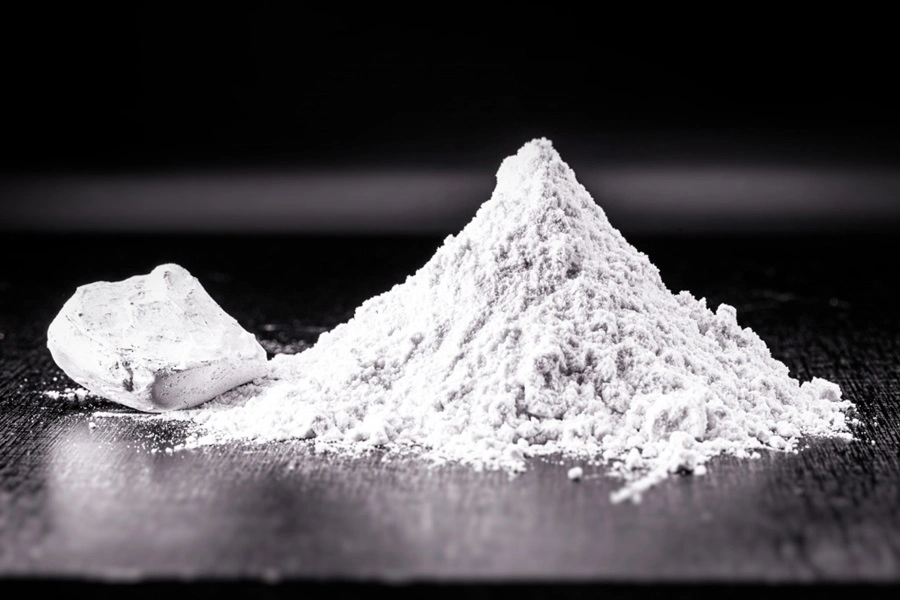Kaolin
We’re here to answer your questions and provide assistance
Characteristics and Properties of Kaolin
Kaolin, also known as china clay, is a natural, fine-grained mineral primarily composed of the clay mineral kaolinite. It is distinguished by its white color, softness, and plasticity, making it a versatile material for various industrial applications. Key properties of kaolin include:
- Whiteness and Brightness: Kaolin’s natural whiteness and ability to enhance brightness make it a preferred ingredient in products requiring a clean, polished finish.
- Plasticity: Its plastic nature allows easy shaping and molding, particularly useful in ceramics and coatings.
- Chemical Inertness: Kaolin is chemically stable, which enhances its durability in a range of applications.
- Thermal Stability: It retains its properties under high temperatures, making it ideal for refractory and ceramic applications.

Formation and Geology
Kaolin is formed through the weathering and hydrothermal alteration of feldspar-rich rocks such as granite. Over time, aluminum silicates in the rocks degrade into the clay mineral kaolinite, resulting in deposits rich in kaolin. These deposits are often mined in areas with feldspar-rich geological formations.
Industrial Applications of Kaolin
Kaolin’s unique properties make it indispensable across numerous industries:
Ceramics and Porcelain:
- Kaolin is a fundamental ingredient in the production of porcelain and fine ceramics.
- It improves workability, reduces shrinkage during firing, and enhances the final product’s strength and translucency.
Paper Industry:
- As a coating and filler, kaolin enhances paper quality by improving brightness, smoothness, and printability.
- It is used extensively in glossy magazines, catalogues, and high-quality packaging.
Paints and Coatings:
- Kaolin serves as an extender and pigment in paints, providing opacity, smoothness, and durability.
- It also helps reduce production costs by replacing more expensive ingredients.
Rubber and Plastics:
- Used as a reinforcing filler, kaolin enhances the mechanical properties of rubber and plastic products.
- It provides improved durability, flexibility, and resistance to abrasion.
Cosmetics and Personal Care:
- Kaolin is used in facial masks, powders, and other cosmetic products for its absorbent and gentle cleansing properties.
- Its non-toxic nature makes it ideal for sensitive skin formulations.
Pharmaceuticals:
- Kaolin is used as an excipient in drug formulations and as an anti-caking agent in tablets and powders.
Construction:
- In cement and concrete production, kaolin acts as a pozzolanic material, improving strength and durability.
- It is also used in lightweight building materials and insulative products.
Packaging and Supply Options
Kaolin is available in a variety of forms to suit specific industrial requirements:
- Powdered Kaolin: Fine-ground kaolin for use in ceramics, paints, and coatings.
- Lump Form: For large-scale processing or further refinement.
- Bulk and Bagged Options: Supplied in bulk or pre-packaged bags to meet operational needs.
